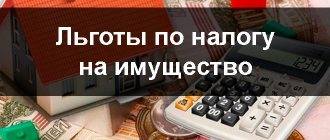There are two additional conditions under which real estate is exempt from tax:
- the property is not used for business purposes;
- the property must be the personal property of the taxpayer.
In addition to all of the above, it is necessary to understand that according to the new requirements, a tax benefit is provided exclusively in relation to one object of each type of real estate. At the same time, the pensioner himself makes the direct choice. Consequently, if a pensioner has several dachas or apartments in personal ownership, then the application of the benefit will be permissible only in relation to one apartment or dacha.
Sample application to the Internal Revenue Service for property tax benefits for pensioners
To do this, you need to take the following steps:
- Contact the tax authorities and provide a certificate in Form 3 of Personal Income Tax, with the items, income, and value of the property indicated in it.
- In addition to this document, you will need to write a corresponding application, the form of which should be obtained directly from the tax office. As an addition, you will need a photocopy of your passport, a certificate of income 2 personal income tax, as well as a package of documentation for the apartment. In addition, it is necessary to provide a receipt for receipt of funds, a contract for the purchase and sale of real estate, and the right to own the property.
- After this, the provided documentation is checked by representatives of the tax service. Particular attention is paid to checking the correctness of all documents, the pensioner’s right to receive benefits.
Application for property tax benefits for pensioners
- Tax audits
- What should a complaint to the tax inspectorate contain?
- Tax return
- Complete list (list) of persons who are required to file a tax return
- Sample of filling out the 3-NDFL tax return for 2014 - 2017:
- title page
- income from sources in the Russian Federation, taxed at a rate of 13% (sheet A)
- calculation of property tax deduction (sheet D 1)
- calculation of property tax deductions for income from the sale of property (sheet D2)
- calculation of standard tax deductions (sheet E1)
- calculation of social tax deductions (sheet E2)
Tax benefits for pensioners on property tax in 2018
Application for property tax benefits for pensioners This document is in a free form, since at the legislative level there is no regulatory legal act that would establish a single sample. But, despite this, in 2020 a standard form for this application was officially approved, which is filled out as follows:
- In the upper right corner, information regarding the address of the subordinate tax authority is filled in;
- Next, the applicant must check the box next to the required box, which lists the types of taxes;
- Then the pensioner fills in the information that he receives this benefit on the basis of a pension certificate;
- Next, the taxpayer enters information of a personal nature.
Statements
- garage or parking place;
- the notification must indicate one taxable object of each type at the taxpayer's choice in respect of which the taxpayer wishes to apply the benefit. If a taxpayer owns different types of real estate (for example, a residential building and a garage), he has the right to claim preferential taxation on both properties. If you own several real estate objects of the same type, you can choose the object in respect of which the benefit will be applied;
- If the notice is not provided by November 1, 2020, it can be provided the following year in order to take advantage of the tax benefit in 2020. At the same time, for 2015, the benefit will be provided in relation to the object with the maximum tax amount.
What to do if you receive a receipt
As practice shows, some pensioners, even after receiving benefits, still receive a receipt from the Tax Service. In most cases, such an overlay occurs due to the taxation of real estate, which a citizen shares with his relatives who are not pensioners.
Of course, you do not need to pay the amount indicated on the receipt. The pensioner needs to take it, a passport, a pension certificate and visit the nearest NS branch. When a government agency employee receives confirmation that the applying citizen has a benefit, he will recalculate everything and eliminate the error.
If the amount of the erroneous receipt has already been deposited, the pensioner can return it. For this you also need to visit the National Assembly. After verification, the money will be returned to your account.
Every pensioner has the right to take advantage of the benefit. If an elderly citizen for some reason does not submit an application to the tax office, he may be automatically exempt from taxation. At the same time, you need to understand that the property will be selected in the same way. Therefore, experts advise pensioners to submit an application for benefits in advance and enter the most expensive real estate they own.
Situation: in March 2020, a pensioner sold one apartment and bought another. That is, he always owned only one apartment.
In September 2020, he received a tax notice for 2017, which indicated two objects of taxation: an old apartment (3 months) and a new apartment (9 months). At the same time, property tax was assessed for one of the apartments - probably, the tax office considered that the pensioner owned two apartments in 2020, and the tax benefit is provided for one property.
Is property tax correctly assessed in this case, since not a single day in 2020 did the pensioner own two apartments at the same time?
If both transactions took place in March, there may be a tax liability. It's all about how she calculates deadlines. Now I will explain how to count correctly.
Tax benefits for pensioners - procedure for provision and sample application
Important
Persons of retirement age are a category of people that the state tries to constantly support and provide with various benefits. One of these important advantages is the provision of property tax benefits. As for the current pension system in the Russian Federation, only one thing can be stated - it needs a considerable number of improvements in order to become completely perfect and adapted to the needs of the population.
Today, given the unstable economic and financial situation of the country, the government is still trying to implement everything possible to make life easier for pensioners.
Application for property tax relief
Info
There is no need to panic, but you must immediately take the receipt, contact the Federal Tax Service inspectorate and provide the employee with your pension certificate as confirmation of the right to use the benefit. Besides all this, there is a certain caveat. Provided that if the real estate is located in shared ownership, then it is initially necessary to identify persons of retirement age among all owners.
For other property owners, pensioners do not have to pay taxes in their original form, but divide it directly between the elderly people who live in this apartment. Our lawyers know the answer to your question. If you want to find out how to solve your particular problem, then ask our duty lawyer online. The second is for transport tax benefits. The third is for a property tax benefit. General rules for filling out the application:
- on the computer;
- by hand.
In the first case, fill out the document in “Courier New” font size 16 - 18 points. Secondly, in black ink. Fill out the application from left to right in block capital letters.
Enter one letter or number in one cell. In all empty cells that do not contain data, put a dash (horizontal line). After completing all the necessary sheets, enter their serial number. The title page is always number “001”. Title page First of all, indicate your Taxpayer Identification Number. If you don't know it, you don't have to indicate it. But you can find it out using our “Find out your TIN” service. Next, indicate the code of the tax office to which the application is sent. In practice, this means that benefits and the procedure for their application (as well as tax rates) for:
- Only federal authorities have the right to establish federal taxes through the adoption of federal laws;
- regional taxes have the right to be established by both federal and regional authorities;
- Local taxes have the right to be established by both federal and regional authorities and local governments (municipalities on whose territory a land plot, house, apartment, or other real estate is located), and for federal cities of Moscow, St. Petersburg and Sevastopol - legislative ( representative) government bodies of federal cities of Moscow, St. Petersburg and Sevastopol).
Conditions for providing benefits
People who own a pension certificate can take advantage of the discount when paying the property tax, regardless of whether they work or not. Also, the basis for receiving a pension does not matter: disability, old age, loss of a breadwinner, etc. Property tax benefits for pensioners are provided under the following conditions:
- possession of a pension certificate;
- home ownership;
- the cost of the property is less than 300 million rubles;
- the property is not used for business activities.
Who is entitled to
Various categories of citizens of the Russian Federation apply for exemption from property payments. Federal beneficiaries are:
- pensioners;
- disabled people of groups II and I;
- disabled since childhood;
- heroes of the RSFSR and the USSR;
- participants of the Second World War and military operations in Afghanistan;
- holders of the Order of Glory of 3 degrees;
- military personnel;
- family members, parents of military personnel who died in the line of duty;
- Chernobyl accident liquidators;
- other persons specified in Article 404 of the Tax Code of the Russian Federation.
In addition to federal categories of beneficiaries, there are also regional ones. The latter include, for example, large families. Each region has its own list of beneficiaries, which can be expanded by local authorities. You can find it out by visiting the city administration or the municipality website. The number of benefits for a pensioner does not increase, even if he falls under several such categories of persons.
What objects are exempt from taxation?
Exemption from property tax is subject to 1 object of one type of property. For example, if a person owns two privatized apartments, a 100% discount is provided for the payment of only one of them. Cancellation of the fee is possible for the following objects:
- apartment;
- house;
- room;
- premises used in professional creative activities;
- parking spaces and garages;
- utility structures and buildings (total area - no more than 50 m²) located on garden dachas and other land plots.
- How to donate blood during coronavirus
- Peach Pie
- Pickling cucumbers
In addition to the zero payment for property, the beneficiary has the right to take advantage of special deductions for other real estate properties. The discount is provided in the form of reducing the area of the home by a certain amount when calculating the payment according to:
- room - 10 m²;
- apartment - 20 m²;
- house - 50 m².
Privatized housing is not subject to preferential taxation if:
- the cadastral value of a real estate unit exceeds 300 million rubles;
- the living space is used for commercial purposes;
- a citizen owns 2 or more objects of the same type of property (in this case, only 1 of the objects of each type is not paid for).
Application for cancellation of property tax for a pensioner
Attention
A sample of filling out such an application may look like this: To the Inspectorate of the Federal Tax Service of Russia No. 11 for Moscow from Ivanov Ivan Ivanovich INN1 770102030405 residing at address2: 127381, Moscow, st. Otkrytaya, 18, apt. 90 contact telephone APPLICATION Based on paragraph 1 of Article 56 of the Tax Code of the Russian Federation and (name of the regional or local regulatory act providing for the benefit), I ask you to provide me, an old-age pensioner, with a tax benefit in the form of an exemption from paying (name of tax) in relation to what I own (name property).
Information about the property: Item No. 1 (for registration of transport tax benefits): make, model: ; state registration plate: ; year of issue: ; engine power (hp/kW): .
Tax rates
^Back to top of page
- Tax rates are established by regulatory legal acts of representative bodies of municipalities (laws of the federal cities of Moscow, St. Petersburg and Sevastopol).
Tax rates depend on the procedure used in the constituent entity of the Russian Federation for determining the tax base: based on the cadastral value or based on the inventory value of taxable real estate (residential houses, apartments, rooms, garages, parking spaces, non-residential premises, unfinished construction projects, other buildings, buildings, structures, premises).
The list of regions that apply the procedure for determining the tax base based on the cadastral or inventory value of taxable objects is posted in the section “Taxation of real estate based on cadastral value.”
- In municipalities, the cities of Moscow and St. Petersburg, which apply the procedure for determining the tax base based on the cadastral value of taxable objects, tax rates are set in amounts not exceeding:
- in a relationship:
- residential buildings, parts of residential buildings, apartments, parts of apartments, rooms;
- objects of unfinished construction if the designed purpose of such objects is a residential building;
- single real estate complexes, which include at least one residential building;
- garages and parking spaces, including those located in taxable objects specified in subparagraph 2 of paragraph 2 of Article 406 of the Tax Code of the Russian Federation;
- economic buildings or structures, the area of each of which does not exceed 50 square meters and which are located on land plots for private farming, gardening, gardening or individual housing construction.
In this case, tax rates can be reduced to zero or increased, but not more than three times, by regulatory legal acts of representative bodies of municipalities (laws of the federal cities of Moscow, St. Petersburg and Sevastopol) (
Article 406 of the Tax Code of the Russian Federation
).
In relation to taxable objects included in the list determined in accordance with paragraph 7 of Article 378.2 of the Code, in relation to taxable objects provided for in paragraph two of paragraph 10 of Article 378.2 of the Code, as well as in relation to taxable objects, the cadastral value of each of which exceeds 300 million rubles
In relation to other objects of taxation.
If tax rates are not determined by regulatory legal acts of representative bodies of municipalities (laws of the federal cities of Moscow, St. Petersburg and Sevastopol), taxation is carried out at the tax rates specified in the Tax Code.
It is allowed to establish differentiated tax rates depending on:
- cadastral value of the taxable object;
- type of taxable object;
- location of the taxable object;
- In municipalities that apply the procedure for determining the tax base based on the inventory value of taxable objects, tax rates are set on the basis of the total inventory value of taxable objects owned by the taxpayer multiplied by a deflator coefficient (taking into account the taxpayer’s share in the right of common ownership of each of such objects ), located within the same municipality (federal city of Moscow, St. Petersburg or Sevastopol), within the following limits:
The total inventory value of taxable objects, multiplied by a deflator coefficient (taking into account the taxpayer’s share in the right of common ownership of each of such objects) Tax rate Up to 300,000 rubles inclusive Up to 0.1 percent inclusive Over 300,000 to 500,000 rubles inclusive Over 0.1 to 0.3 percent inclusive Over 500,000 rubles Over 0.3 to 2.0 percent inclusive
If tax rates are not determined by regulatory legal acts of representative bodies of municipalities, taxation is carried out at the tax rate:
- 0.1 percent in relation to objects with a total inventory value multiplied by a deflator coefficient (taking into account the taxpayer’s share in the right of common ownership of each of such objects), up to 500,000 rubles inclusive;
- 0.3 percent for other objects.
It is allowed to establish differentiated tax rates depending on:
- the total inventory value of taxable objects, multiplied by a deflator coefficient (taking into account the taxpayer’s share in the right of common ownership of each of such objects);
- type of taxable object;
- location of the taxable object;
Go Detailed information about established tax rates can be found using the information resource:
We suggest you read: Where to go if there is no electricity
“Reference information on rates and benefits for property taxes”
Application form for cancellation of property tax for a pensioner
To get your tax back, you need to submit not one, but two applications to the inspectorate:
- to provide benefits from the date when you became entitled to it (month of retirement, month of receipt of disability, etc.);
- for a tax refund for periods when you could have taken advantage of property tax benefits, but did not (see the link for a sample).
Send both applications in one letter. Example: A pensioner had the right not to pay property tax on the cost of an apartment, but paid it regularly. The pensioner learned that he had been paying taxes in vain in March 2020. He has the right to demand a refund of taxes paid starting from March 2020. He no longer has the right to claim a refund of the tax that was transferred even earlier.
Exemption from real estate tax
Property tax is a direct tax on movable and immovable property owned. Local authorities have the right to independently establish the procedure, payment deadlines and tax rates within the limits established by laws:
- Chapter 30 of the Tax Code of the Russian Federation for legal entities
- Law of December 9, 1991 No. 2003-1 “On property tax for individuals.”
Property tax is levied on property owned by legal entities and individuals. Objects of taxation are movable and immovable property:
- Movable - clause 2 of Art. 130 of the Civil Code of the Russian Federation - these are things that can move freely with the owner. They can be:
- Money;
- Securities;
- Animals;
- Vehicles;
- Debentures;
- Other property that does not fall under the category of real estate.
- Real estate - clause 1 of Art. 130 of the Civil Code of the Russian Federation - real estate that is inextricably linked to the land and cannot be moved. Here are some of them:
- Building;
- Facilities;
- Unfinished construction projects;
- Marine vessels;
- Aircraft;
- Space objects;
- Other objects that cannot be moved without damaging their integrity.
Changes in legislation on the issue of property tax for pensioners came into force on January 1, 2020. From this moment on, all the pensioner’s property is subject to taxation, but benefits are provided.
Persons of retirement age do not pay property tax on real estate if:
- This property is his property (the real estate is privatized and belongs to him as a property, which is confirmed by a certificate);
- The property is not used for profit.
Benefits for pensioners when paying real estate taxes are provided for in subsection. 10 p. 1 art. 407 Tax Code of the Russian Federation. According to this rule, the following are entitled to benefits:
- Pensioners receiving payments in accordance with pension legislation;
- Men over 65 years of age and women over 60 years of age, who, according to the legislation of the Russian Federation, receive funds for lifelong maintenance.
If the Tax Code of the Russian Federation does not define the term “Pension legislation”, property tax benefits do not depend on the basis on which the pension is assigned - under the legislation of the Russian Federation or another state.
The benefits are intended for citizens of the Russian Federation and foreign pensioners who own real estate in the Russian Federation. Types of property that do not oblige pensioners to pay tax on it are defined in paragraph 4 of Art. 407 Tax Code of the Russian Federation. To use the benefit, the pensioner must be the owner of the property.
ST 407 Tax Code of the Russian Federation 1
Pensioners in the Russian Federation are required to pay property tax if they own more than one piece of real estate. If there is only one property, then citizens of retirement age do not pay tax, regardless of whether the pensioner is working or not.
NK Art. 401, para. 10 clause 1, clause 4 art. 407 of the Tax Code of the Russian Federation: “A pensioner receiving a pension assigned in the manner established by the pension legislation of the Russian Federation is exempt from paying property tax if he owns it.”
Types of property for which pensioners are not required to pay tax:
- apartment or room;
- House;
- garage or parking space in a shared garage;
- premises used as creative workshops, studios, ateliers, private libraries, galleries;
- outbuildings, the area of which does not exceed 50 square meters, located on land plots provided for personal farming, summer cottages and individual housing construction.
Pensioners do not receive benefits for all property, but only for one category of each type. For example, if a pensioner has an apartment, a house and a garage, then he is completely exempt from paying property tax. And if you own two apartments and a house, then the pensioner is obliged to pay tax to the state for the second apartment.
According to Part 3 of Art. 407 of the Tax Code of the Russian Federation, a tax benefit is provided only for one object of the taxpayer’s choice, regardless of the number of benefits. A pensioner who owns several apartments does not pay tax on only one of them. Tax on other apartments is paid on a general basis. The beneficiary has the right to choose an apartment for which he will not pay taxes.
You don't have to pay property taxes. This will depend on the taxpayer status and type of property. The Russian Federation defines categories of citizens who legally do not pay property taxes. There are federal and regional benefits:
- Federal benefits are provided for all Russian cities. Beneficiaries are exempt from paying property tax regardless of their region of residence. Among them: pensioners;
- disabled people of group 1 or 2;
- Knights of the Order of Glory;
- heroes of the country (including the USSR);
- military personnel who retired due to age with 20 years of service;
- military families who have lost their sole breadwinner;
- spouses and parents of military personnel killed in the line of duty;
- WWII veterans;
- disabled children;
- people affected by accidents at Chernobyl or at the Mayak nuclear power plant;
- citizens using property for creative activities and as a cultural object;
- owners of outbuildings, but not more than 50 sq. m., located on plots for agricultural personal subsidiary plots, summer cottages, gardening, vegetable gardening.
- large families;
The full list of beneficiaries in each region can be clarified with the tax authorities. Criteria for real estate that is not subject to tax:
- The property must be owned by the applicant.
- The object of taxation is not used to generate profit.
The benefit is provided for one object of each type: one apartment, one house and one garage at a time. If a pensioner has more than one apartment, then he does not pay tax on only one of them at his discretion; on the rest, the tax is charged in full. If you own an apartment and a house, then no tax is paid.
The basis for calculating the pension does not matter. This may not be an old-age pension, but a survivor's pension or a state pension. At the same time, a pensioner can work and receive a salary in addition to a pension, but the benefits remain the same.
List of preferential real estate objects from the Tax Code:
- residential building or part thereof;
- apartment, share in an apartment, room;
- garage or parking place;
- premises for workshops, ateliers, studios;
- outbuildings with an area of no more than 50 square meters.
People who have reached retirement age are entitled to benefits if the following conditions are met:
- If the residential property is owned;
- The property is not used for commercial purposes.
The following real estate names act as residential properties:
- At home;
- Premises used for creativity;
- Rooms;
- Commercial buildings up to 50 square meters;
- Apartments.
Categories of property tax beneficiaries, as well as the procedure for receiving benefits, are established by Article 407 of the Tax Code of the Russian Federation.
In accordance with paragraphs. 10 p. 1 art. 407 of the Tax Code of the Russian Federation, pensioners are not required to pay the state property tax levy on one of the real estate objects of each type to choose from - paragraphs. 2-4 tbsp. 407 Tax Code of the Russian Federation.
Benefits are not automatically awarded. The taxpayer submits documents and an application before November 1 of the year, after which his question about receiving benefits will be considered. It takes 30 calendar days to process the request. If it is impossible to consider the application, the tax authority is obliged to inform the applicant about the reasons no later than 5 working days from the date of registration of the documents.
We invite you to read: Removing the encumbrance, simple steps on how to sell an apartment with a mortgage
Collect all the necessary papers and go to the tax office:
- The main document of a citizen (passport) and its copies;
- Pensioner's ID;
- Individual taxpayer number;
- Papers establishing the owner's rights to the property in question.
Waiting for the result.








